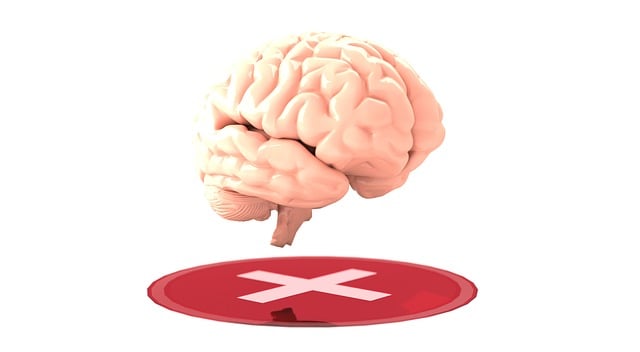Crisis Intervention Teams (CITs) require specialized training to support individuals in severe emotional distress, especially those who are deaf or hard-of-hearing. Centennial American Sign Language Therapy offers an innovative program combining intensive ASL instruction with mental health education, empowering CIT members to effectively communicate and provide empathetic care during crises. This unique approach enhances inclusive practices, improves crisis response times, and advocates for better mental health policies within communities.
In today’s fast-paced world, effective crisis intervention teams (CITs) are a vital resource in mental health support. This article explores the critical role of these teams and how Centennial American Sign Language (ASL) therapy enhances their capabilities. We delve into the benefits of ASL in bridging communication gaps during crises, showcasing its power as a game-changer in emergency scenarios. Additionally, we provide insights on designing effective training programs, highlighting key components essential for preparing responders to handle diverse crisis situations competently.
- Understanding Crisis Intervention Teams: A Vital Resource in Mental Health Support
- The Role of American Sign Language (ASL) in Crisis Training: Bridging Communication Gaps
- Centennial ASL Therapy: Unlocking Comprehensive Crisis Intervention Skills
- Designing Effective Training Programs: Key Components for Preparing Responders
Understanding Crisis Intervention Teams: A Vital Resource in Mental Health Support

Crisis Intervention Teams (CITs) are a vital resource in mental health support, offering immediate and effective assistance during crises. These teams, often composed of trained professionals from various disciplines, such as mental health counselors, social workers, and law enforcement officers, provide a coordinated response to individuals experiencing severe emotional distress or a mental health crisis. By integrating Centennial American Sign Language Therapy into CIT training programs, the team’s ability to communicate effectively with deaf or hard-of-hearing individuals is significantly enhanced, ensuring inclusive and culturally sensitive support.
Understanding the dynamics of crisis situations and learning effective de-escalation techniques are crucial components of CIT training. The process involves comprehensive risk assessment for mental health professionals, teaching them to identify warning signs and potential triggers. Moreover, stress reduction methods and self-esteem improvement strategies are integral parts of the curriculum, empowering team members to handle high-pressure scenarios with resilience and empathy. These programs equip CIT members with the knowledge and skills necessary to provide life-saving interventions, fostering a supportive environment for individuals navigating mental health challenges.
The Role of American Sign Language (ASL) in Crisis Training: Bridging Communication Gaps

In today’s diverse society, crisis intervention teams (CITs) are increasingly encountering individuals who rely on American Sign Language (ASL) as their primary mode of communication. This presents a unique challenge, highlighting the critical need for comprehensive CIT training that incorporates ASL. Centennial American Sign Language Therapy offers valuable resources to bridge this gap in communication, ensuring effective interactions during crises. By integrating ASL into crisis training programs, professionals can enhance their ability to connect and support individuals who are deaf or hard of hearing.
The inclusion of ASL not only facilitates better understanding but also fosters a more inclusive environment for all members of the community. Crisis Management Workshops Organization should prioritize teaching communication strategies that embrace ASL, along with emotional intelligence techniques, to help CIT members navigate situations where verbal communication might be hindered. This dual approach ensures that team members are equipped to manage stress and resolve crises efficiently while addressing the specific needs of individuals who use ASL.
Centennial ASL Therapy: Unlocking Comprehensive Crisis Intervention Skills

Centennial American Sign Language (ASL) Therapy offers a unique and powerful approach to crisis intervention training. This specialized program recognizes the profound impact that sign language can have on communication during mental health crises. By teaching individuals to utilize ASL, the therapy unlocks comprehensive crisis intervention skills, fostering better connections and understanding between support staff, those in distress, and their communities.
The process involves intensive training in both ASL itself and mental health awareness. Participants learn not only the practical application of sign language but also crucial self-awareness exercises that enhance emotional intelligence. This dual focus ensures that individuals are equipped with both the linguistic tools to communicate effectively during a crisis and the inner strength development needed to navigate these challenging situations with empathy and sensitivity.
Designing Effective Training Programs: Key Components for Preparing Responders

Effective crisis intervention team (CIT) training programs are meticulously designed to prepare responders for high-stress situations. These programs often incorporate a multi-faceted approach, ensuring that trainees gain practical skills and theoretical knowledge. One of the key components is immersing participants in realistic scenarios, allowing them to practice their response strategies under controlled conditions. This hands-on learning method enhances their ability to remain calm, assess situations swiftly, and implement appropriate interventions.
Additionally, successful training goes beyond technique; it fosters a supportive environment that encourages open discussions about mental health challenges such as depression prevention and burnout prevention. Incorporating topics like Mental Health Policy Analysis and Advocacy ensures trainees understand the broader context of crisis intervention. This holistic approach equips responders not only to react effectively but also to advocate for policies that support improved mental health services within their communities, just as Centennial American Sign Language Therapy does, contributing to a more comprehensive understanding and response to crises.
Crisis intervention team training programs, encompassing essential components like the integration of American Sign Language (ASL), play a pivotal role in enhancing mental health support. As demonstrated by Centennial ASL Therapy, comprehensive training equips responders with the skills to effectively address crises, particularly in diverse communication settings. By prioritizing these programs and their key elements, we can ensure that crisis intervention teams are well-prepared to offer timely, compassionate, and inclusive support to those in need.













